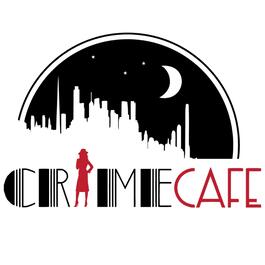
This week’s episode of the Crime Cafe podcast features my interview with paleontologist and crime writer Leonard “Kris” Krystalka. Check out his reading from The Bone Field! Grab a PDF copy of the transcript here! Debbi: Hi everyone. My guest today is both a professional paleontologist and a novelist. He writes the Henry Przewalski - is that correct, I hope? Przewalski? Leonard: Literally, it reads as Przewalski but it's actually a Russian-Polish name, named for the discoverer of Przewalski's horse, that small kind of dwarfish horse that lives wild on the Asian steppes. So it's pronounced in the Russian sense. Debbi: Got it. All right. I'll try to remember that. It's my pleasure to have him with me today. It's Leonard Krystalka, who goes by Kris. Like Kris Kristofferson, may he rest in peace. Leonard: May he rest in peace. A terrific person. Debbi: Indeed. Yes. Leonard: Yes. Wonderful artist. Debbi: He was, yes. I want to thank you for being here so much. It's good to have you on. Tell us about Harry Przewalski. I almost screwed that up again. How much did you draw from your own experiences in creating him? Leonard: A great deal. I named Harry Przewalski as a homage to the study of the life of the past and the study of present biodiversity. So, Przewalski's horse is this miniature horse that roams wild on the steppes of Asia. It almost became extinct by over hunting, and in World War II, the German soldiers ate what is reputed to be some of the last Przewalski's horses in a zoo in Poland. But enough were saved to repopulate the wild steppes of Asia. Przewalski's horse is this miniature horse that roams wild on the steppes of Asia. It almost became extinct by over hunting, and in World War II, the German soldiers ate what is reputed to be some of the last Przewalski's horses in a zoo in Poland. Debbi: Interesting. Did you choose that name deliberately? Leonard: I did. I chose it deliberately, although it's hard to pronounce, and as a homage to the paleontological studies of the evolutionary history of life on Earth, the three billion year history of life on Earth. Debbi: That is so cool. How many books do you have in the series, and how many do you plan to write? Or do you have a plan for the series? Leonard: There are four books now in the Harry Przewalski series. There's THE BONE FIELD, DEATH SPOKE, THE CAMEL DRIVER, and the newest one just published this year called NATIVE BLOOD. I have a fifth novel, which is not in that series. It's a historical fiction of a murder that occurred in Lawrence, Kansas in 1871. A doctor accused of murdering his patient because he was having an affair with the patient's wife. The doctor was arrested and the resulting trial was equivalent to … imagine the OJ Simpson trial in 1871 in Kansas. You have sex, you have murder, you have adultery. It attracted reporters of every single newspaper in the country from San Francisco, from Chicago, from St. Louis, from New York, Washington, Detroit, and so forth. This is 1871 Kansas. It's only six years after the end of the Civil War. So the trial was a national sensation, and one of the Lawrence women becomes the heroine. She talks the editor of one of the Lawrence newspapers into hiring her as the first woman correspondent west of the Mississippi. She covers the trial and solves the murder. Debbi: Wow. Leonard: She also fights for women's rights. She fights for suffrage for women and blacks. Yeah, she's quite a woman. Debbi: And which book is this again? Leonard: This is called THE BODY ON THE BED. I could hold it up for viewers to see. Debbi: That's very cool. I noticed that book was outside the series. Leonard: Yeah, it is. I'm writing the sequel to that now. It's called The Body on the Bricks. She is the heroine of that book as well. But your original question was about the Przewalski series of which there are now four, and yes, there may well be a fifth. Debbi: Fantastic.
From "The Crime Cafe"


Comments
Add comment Feedback